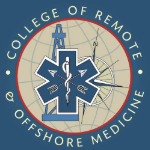Detailed introduction of College of Remote and Offshore Medicine:
Introduction
College of Remote and Offshore Medicine is a higher education institution located in Malta, focusing on providing education and training for medical professionals in remote, offshore, military and security industries, and is committed to promoting medical innovation in resource-limited environments.
Overview
Students and Faculty: It attracts students from six continents around the world, including students, doctors, nurses, paramedics and emergency medical technicians. The student group is diverse and has a rich practical background. It has a faculty composed of medical experts from all over the world. They not only have profound academic attainments, but also have practical work experience in special environments such as remote areas and military medical care.
Course Setting: It provides undergraduate and postgraduate degree courses, covering multiple professional fields such as telemedicine practice, critical care in severe environments, tropical medicine and health, global health, etc. At the same time, it also has a variety of short courses, online courses and training programs to meet the learning needs of students at different levels and backgrounds.
History and Establishment Time
The college was founded in 2016 by Andrew Grech, Aebhric O’Kelly, Winston De Mello and Anne O’Kelley. Its predecessor was an educational project initiated in 2014 by medical staff and doctors from the US Army Special Forces and the British Special Air Service.
School Strength
Accreditation and Cooperation: It has been accredited by the Malta Further and Higher Education Authority and is authorized to award undergraduate and postgraduate degrees. At the same time, the college has also been recognized by professional organizations such as the Wilderness Medical Association and the European Continuing Medical Education Accreditation Committee, and has established extensive cooperative relations with many universities and institutions around the world, such as Ternopil National Medical University in Ukraine, Kilimanjaro Christian Medical Center and University College in Tanzania, etc.
Teaching resources and practical opportunities: With the help of local teaching facilities in Malta and international cooperation networks, students are provided with high-quality educational resources and practical opportunities. The college's main campus is located in Pretty Bay, Malta, with classroom facilities that simulate remote clinic environments; in addition, it also cooperates with local ambulance service stations to provide students with real remote and severe working environment simulation training, as well as cadaveric surgical skills courses, international clinical internships and other projects.
Scientific research and professional development: The college actively carries out medical research projects, especially in the fields of medical care in remote areas and medical practice in severe environments, and promotes the innovation and application of medical knowledge and technology. At the same time, by holding academic conferences, seminars, webinars and other activities, we promote exchanges and cooperation among medical professionals and improve their professional level and practical ability.
Nature of the institution
A non-profit higher education institution.
Educational philosophy
Committed to cultivating professionals who can provide high-quality medical services in remote, offshore, military and other resource-limited environments, emphasizing the cultivation of medical innovation and practical ability, and focusing on combining academic theory with practical application to improve the response ability and treatment level of medical professionals in severe environments.
Key laboratories and disciplines
Key disciplines:
Telemedicine practice: This discipline aims to cultivate students' medical practice ability in remote and resource-limited environments, including knowledge and skills in remote diagnosis, treatment and patient management, so that students can effectively provide medical support to remote areas or offshore workers.
Critical care in severe environments: Focus on the lack of advanced medical Under the condition of insufficient equipment and resources, the theory and practice of emergency treatment and nursing for critically ill patients involves trauma care, emergency medicine, intensive care and other fields, and cultivates students' emergency response and decision-making capabilities under extreme conditions.
Tropical Medicine and Health: Teaching and research on the prevention, diagnosis and treatment of common diseases in tropical regions, as well as relevant knowledge and skills training for medical rescue and public health work in tropical environments, so that students can cope with the unique health challenges in tropical regions.
Global Health: Focusing on health issues and health care systems around the world, cultivating students' ability to analyze and solve health problems from a global perspective, including international health policies, global disease prevention and control, cross-cultural medical services and other aspects, laying the foundation for students' career development in the international medical field.
Discipline Advantages: The discipline advantage of the college lies in its close integration with actual needs, and the curriculum setting is highly targeted and practical. Through joint teaching and practice projects with international partners, students can be exposed to medical cases and practical experience in different regions and environments, broaden their horizons, and improve their comprehensive quality and professional competitiveness. In addition, the faculty of the college has rich practical experience and professional knowledge in related fields, and can provide students with high-quality teaching and guidance.
Departments
The college has the following four departments:
Department of Telemedicine Practice: Mainly responsible for the teaching and research of telemedicine practice-related majors, including the design and implementation of undergraduate and graduate courses, as well as the development of relevant short-term courses and training programs, to cultivate students' professional skills and practical abilities in the field of telemedicine.
Department of Critical Care Nursing in Severe Environments: Undertakes the teaching tasks of critical care nursing majors, focuses on cultivating students' ability to treat and care for critically ill patients in severe environments, and conducts master's and doctoral level course education, as well as professional training and academic research activities.
Department of Tropical Medicine and Health: Dedicated to teaching, scientific research and training in the field of tropical medicine and health, it offers graduate courses and professional certification programs related to tropical medicine, providing students with opportunities to learn in-depth knowledge of tropical disease prevention and control, medical services in tropical areas, etc.
Department of Global Health: Focuses on the research and education of global health issues, and cultivates students' global vision and cross-cultural medical service capabilities through master's courses and academic exchange activities, and promotes the cultivation of professional talents and knowledge dissemination in the field of global health.
Ranking
The specific ranking of the college in the international authoritative university rankings has not been found, but it has a high reputation and professional recognition in the field of remote and offshore medicine.
Expenses
Tuition fees: Tuition fees for different courses vary. For example, the tuition fee for undergraduate courses is about [X] euros per year, the tuition fee for master's courses is about [X] euros per year, and the tuition fee for doctoral courses is about [X] euros per year. The specific tuition fees can be found on the college's official website or consult the admissions office according to different majors and course settings.
Other fees: In addition to tuition fees, students may also need to pay registration fees, textbook fees, examination fees, and related fees for participating in international clinical internships or training programs.
Campus environment
Geographic location: The college's main campus is located in Pretty Bay, Malta, with beautiful surroundings and convenient transportation. As an island country in the Mediterranean, Malta has rich historical and cultural heritage and natural landscapes, providing students with a good learning and living environment.
Campus facilities: The campus is equipped with modern classrooms, laboratories, simulation clinics and other teaching facilities to meet students' theoretical learning and practical operation needs. In addition, the college is also equipped with advanced distance learning equipment and online learning platforms to facilitate students' distance learning and communication. At the same time, cooperation with local medical institutions and enterprises also provides students with more practice places and internship opportunities.
-

American University of Malta
-

London School of Commerce, Valletta
-

College of Remote and Offshore Medicine
-

University of Malta
-

Triagon Academy, Valletta
-

Signum Magnum College, Portomaso, Malta
-

Middlesex University Malta
-

Malta Institute of Taxation
-

Mesoamerican University
-

Istmo University
-

Mariano Galvez University of Guatemala
-

Regional University of Guatemala
-

Galileo University
-

Francisco Marroquín University
-

Rafael Landívar University
-

University of the Valley of Guatemala
-

University of San Carlos of Guatemala
-

Technological Institute of Tlaxcala Plateau
-

Golfo University
-

Technological University of South Sonora
-

Technological University of Huejotzingo
-

Tizimín Institute of Technology
-

Chilpancingo Institute of Technology
